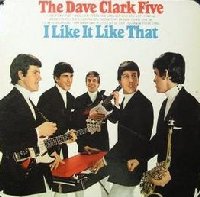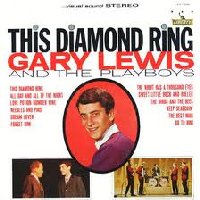(Click for
AUDIO VERSION)
 Back in the 1980's I wrote a paper entitled "The 4 Stages of IRM Growth" which described the maturation process by how companies implement information resources (Information Resource Management). The paper was published not only in the trade press but was included in our book, "The IRM Revolution - Blueprint for the 21st Century," (MBA Press) which was well received, not only in this country but in Japan as well. I recently stumbled across the paper again and, in reading it, I found it to be as applicable to today's world as when I first penned it 25 years ago.
Back in the 1980's I wrote a paper entitled "The 4 Stages of IRM Growth" which described the maturation process by how companies implement information resources (Information Resource Management). The paper was published not only in the trade press but was included in our book, "The IRM Revolution - Blueprint for the 21st Century," (MBA Press) which was well received, not only in this country but in Japan as well. I recently stumbled across the paper again and, in reading it, I found it to be as applicable to today's world as when I first penned it 25 years ago.
The paper descibes the characteristics of a company as it implements information resources in four stages: Birth, Childhood, Adolescence, and Adulthood.
BIRTH
The day a company goes into business is the day when its information systems are born. When a new company or organization is established, there are some very primal information requirements to accommodate the operation of the enterprise. For example, basic bookkeeping (billing, payroll, government reporting, etc), minutes of meetings, recording of policy decisions, schedules, correspondence, etc.
To implement these basic administrative requirements, simple office equipment is typically required, such as typewriters, calculators, photocopiers, telephones, fax machines, etc.
An Office Manager with a clerical staff (e.g., secretaries, book-keepers) normally implements these processes and operates the equipment. During this stage, their concern is for implementing basic manual procedures with an eye for work simplification to minimize overhead.
As the business expands and becomes more complicated, whether from an increase in employees and/or business, there is a growing demand for more information which leads to the next stage of growth...
CHILDHOOD
This stage is entered into either by an emerging company or an established firm that is pressured to investigate the potential of new technology, namely the computer, to give leverage to their business needs. This is a stage which most of the "FORTUNE 500" companies and major government institutions went through in the 1950's, 60's and 70's.
In the childhood stage, the intent is to investigate the potential of the computer. This is an age of experimentation where a highly complicated and technical device is introduced to a company. This new technology, of course, requires a technically oriented individual to operate it. Someone who is more in tune with the equipment as opposed to the problems and objectives of the business.
The computer is typically centralized in one location until someone can determine an appropriate way to apply it to the business.
This stage results in the executive's "black box" image of the computer. The executive doesn't fully understand its capabilities and looks upon it suspiciously as a necessary evil. As a consequence, they divorce themselves from the machine and appoint a "IT Manager" who is given free reign over the new technology. Like the staff that supports him, the IT Manager is technically inclined (probably just one step ahead of a programmer).
The "IT Department" tackles simple problems aimed at automating some of the basic administrative routines of the company. There is not considerable pressure to satisfy business problems, only a "see what you can do" type of attitude. As a result, the IT staff takes an ad hoc, "quick and dirty" programming approach to problem solving. This type of philosophy sows the seeds for problems to come in the years ahead. For example, applications are not integrated, data is not shared (data redundancy is commonplace) and documentation is nonexistent, applications are not easy to maintain or modify. As a result, they are constantly being discarded and rewritten, further compounding the problem.
One of the most significant aspects of this stage is that it fosters the "tool oriented approach" for solving problems. The attitude of the staff is that the only legitimate problems worth solving are those that can be addressed by the computer. All others are immaterial. This is a frame of mind that will take considerable time to overcome. The indifferent attitude of the IT Department irritates and alienates end users who have increasing demands for information.
Impatient for results, management begins to apply pressure on the IT Manager for more applications to satisfy user demands. This leads to the next stage ...
ADOLESCENCE
This is the age of awakening for most companies, an era when the IT Department begins to manage itself in order to accommodate growing business demands. The IT Manager is supplanted by an IT "Director," someone who is a little more adept at management politics.
In this stage, the IT Director implements rudimentary management controls, particularly in the areas of project management and documentation. Using the "tool oriented approach" to improve staff productivity, the IT Director implements several software tools and techniques, such as: Data Base Management Systems (DBMS), Program Generators, Report Writers, Fourth Generation Languages (4GL), Computer Aided Software Engineering (CASE), etc.
Dazzled by sophisticated software and in fear of "falling behind" in the technology race, the IT Director authorizes the purchase of tools that implement esoteric (some prefer to call it "Voodoo") management principles.
Unfortunately, the IT Director is seduced and abandoned by the technology; the results are still the same: Applications do not satisfy user needs, applications are not integrated, data redundancy is still pervasive, applications are still difficult to modify and maintain, and the staff remains a free-spirited group of technicians.
The "tool oriented approach" is very costly to the company, but the results are still the same. The IT Director is still supported by a technical staff that believes that the "real work" is in the production of software, where their programming skills excel. The "Analyst/Programmer" is really nothing more than a senior programmer.
Superficial standards and pseudo-scientific management techniques are applied to the development process. An application project typically consists of the classical approach for developing systems: A primitive Feasibility Study, General Design (sometimes referred to as "External Design"), Detail Design ("Internal Design"), Programming (usually following a Structured Programming Guru's technique), Testing, Installation, and Review. In this situation, programming remains 85% of the entire project. This approach is usually well packaged in voluminous standards manuals (which no one but the Auditors read).
The computer is decentralized with mainframes, minis and micros being distributed throughout the company.
The end User, who is frustrated by the lack of support from the IT Department, turns to the Personal Computer (PC) for help. Unfortunately, the User is no more adept at using the computer to solve his business needs as the IT people are and the problems are compounded even further (particularly in the area of redundant data).
Despite the substantial investment in computer hardware and software thus far, executive management finally recognizes that conditions are intolerable and that the company is not getting a satisfactory return on investment. This becomes the catalyst for change. Without it, the company stagnates and the situation worsens. Adolescence must eventually give way to ...
ADULTHOOD
This stage represents a radical departure from the past mode of operation. Very few companies, if any, have reached this stage of growth yet. It represents a mature environment where the systems staff is in tune with the mission of the company, and information is viewed as a corporate asset used for strategic purposes. This is the age of Information Resource Management (IRM). This philosophy gives rise to the Chief Information Officer (CIO), a true and legal officer of the company, not just a job title. Such an officer reports, at least, on the same level as the Chief Financial Officer (CFO).
No longer is the "tool oriented approach" pervasive in the company. It was tried, and it failed. The latest "state of the art" technology is a worthless status symbol if it doesn't contribute to the profitability of the company.
Now, the CIO turns to tried and proven approaches to management. Information Systems design is no longer viewed as an art, but a science. The CIO organizes the systems development environment into an engineering/manufacturing company, complete with Assembly Lines, Production Control and Materials Management. As a result, the systems staff is transformed from free spirited programming "hackers" to a group of disciplined and quality conscious business professionals. In some respects, the staff will resemble the "Systems and Procedures" staff of yesteryear who had a business orientation.
The computer is viewed as just another piece of office equipment; they are not discernible. Users and management no longer fear technology because the CIO implements it effectively into the business. In the adult stage, the emphasis is on complete and integrated information systems, not just software. Programming is less than 15% of the entire development process, with the bulk of the work being expended on business analysis. Data is managed as a resource and redundancy is eliminated. All of the problems experienced earlier disappear.
As enticing as adulthood may sound, very few companies have the management skill or fortitude to make it happen, particularly in the United States. Most companies don't even understand the problem. Adulthood represents a substantial and long-term corporate commitment, not just departmental commitment, which most American companies strongly resist. Instead, they are content with short-term "quick and dirty" solutions. On the other hand, Asian companies, who are much more far-sighted, have a greater chance for success and are rapidly moving into the adulthood stage. This will make them increasingly more competitive in the years ahead.
THE FOUR STAGES OF MATURITY
| CHARACTERISTICS | BIRTH | CHILDHOOD | ADOLESCENCE | ADULTHOOD |
| APPLICATIONS | Basic Bookkeeping | Program basic administrative routines | Major systems | Information as asset & strategic weapon |
| EQUIPMENT | Basic Office Equipment | Centralized computer | Decentralized computing | Computers blend in with office equipment |
| PERSONNEL | Office Manager & clerical staff | IT Manager & technical staff | IT Doirector & programmer/analysts | CIO & business oriented staff |
| ENVIRONMENT | Concern for manual processing;
Work simplification | Experimentation "See what you can do";
Beginning of the "tool oriented approach" | Awakening. Applying rudimentary management techniques & tools | Age of IRM. Strong management;
Science vs. Art;
Discipline, organization & quality consciousness |
CONCLUSION
Over the last ten years alone, computer technology has changed radically, job titles and terminology have changed, and salaries have risen sharply, but little else has changed. The information problems of today are no different than 10, 20 or 30 years ago. Despite today's technology, companies still experience:
* Project cost overruns and slipped schedules.
* Poor communications and relations with the User community.
* Redundant data and lack of application integration.
* Applications are difficult to modify and maintain.
* Lack of adequate documentation.
* Design inconsistencies.
* Applications still do not satisfy User needs.
* Hardware/Software dependencies.
* Employee dependencies to maintain systems.
The tools and characters have changed, but the tune remains the same. Regardless of the titles and technology used, most companies in North America are stuck in either the "Childhood" or "Adolescent" stages of growth. Indicative of this are the journals, trade groups, universities, and trade shows that still promote the "tool oriented approach" as opposed to promoting management. Systems development is still viewed by many people as an art, not a science. In reality, it is a science. It has established and proven concepts and can be taught as a science.
"No amount of elegant technology will solve our problems, only strong management will."
- Bryce's Law
EPILOGUE
Again, it has been 25 years since I penned this paper but I do not see anything in the corporate world to cause me to change this model. Whereas American businesses tend to be stuck in the Adolescent stage, many companies in Japan and Europe have moved on to the Adulthood stage. As long as our viewpoints remain focused on technology and not the big picture of total systems, America will continue to lose its competitive edge.
Keep the Faith!
Note: All trademarks both marked and unmarked belong to their respective companies.
 Tim Bryce is a writer and the Managing Director of M. Bryce & Associates (MBA) of Palm Harbor, Florida and has over 30 years of experience in the management consulting field. He can be reached at timb001@phmainstreet.com
Tim Bryce is a writer and the Managing Director of M. Bryce & Associates (MBA) of Palm Harbor, Florida and has over 30 years of experience in the management consulting field. He can be reached at timb001@phmainstreet.com
For Tim's columns, see:
http://www.phmainstreet.com/timbryce.htm
Like the article? TELL A FRIEND.
Copyright © 2012 by Tim Bryce. All rights reserved.
 It's interesting what you can learn just sitting on a park bench. Not long ago, I was down at Crystal Beach, a local park and pier on the Gulf of Mexico where I was enjoying some Florida sunshine and waiting for the sunset when I happened to overhear some kids who were bored and looking for something to do. In the course of the conversation they talked about their favorite games; they mentioned: "Call of Duty," "Batman: Arkham City," and "Portal 2." Only then did I realize they were talking about computer video games and got me thinking about the games I played as a child growing up in Connecticut.
It's interesting what you can learn just sitting on a park bench. Not long ago, I was down at Crystal Beach, a local park and pier on the Gulf of Mexico where I was enjoying some Florida sunshine and waiting for the sunset when I happened to overhear some kids who were bored and looking for something to do. In the course of the conversation they talked about their favorite games; they mentioned: "Call of Duty," "Batman: Arkham City," and "Portal 2." Only then did I realize they were talking about computer video games and got me thinking about the games I played as a child growing up in Connecticut. Tim Bryce is a writer and the Managing Director of M&JB Investment Company (M&JB) of Palm Harbor, Florida and has over 30 years of experience in the management consulting field. He can be reached at timb001@phmainstreet.com
Tim Bryce is a writer and the Managing Director of M&JB Investment Company (M&JB) of Palm Harbor, Florida and has over 30 years of experience in the management consulting field. He can be reached at timb001@phmainstreet.com A recent Gallup Poll (ending March 4th) revealed 88% of African-American voters approve of President Obama's performance in office. Unless something radical causes them to change their minds, one can only assume the 88% will vote for the president in November. That is approximately 34 million people, which doesn't sound too bad on the surface, but in reality he'll likely get less than half of that. According to the
A recent Gallup Poll (ending March 4th) revealed 88% of African-American voters approve of President Obama's performance in office. Unless something radical causes them to change their minds, one can only assume the 88% will vote for the president in November. That is approximately 34 million people, which doesn't sound too bad on the surface, but in reality he'll likely get less than half of that. According to the  I've heard a lot of friends in the corporate world complain how irresponsible young people are these days. Initially, I just shrugged it off attributing it as a common complaint that comes with age, but it was recently enforced by some teacher friends who made the same accusation and how it was having an adverse effect on student grades. My first reaction was that it is simply a problem of parenting, that they lack the necessary skills to properly raise their children, but I believe it goes beyond this and is now a general problem in society.
I've heard a lot of friends in the corporate world complain how irresponsible young people are these days. Initially, I just shrugged it off attributing it as a common complaint that comes with age, but it was recently enforced by some teacher friends who made the same accusation and how it was having an adverse effect on student grades. My first reaction was that it is simply a problem of parenting, that they lack the necessary skills to properly raise their children, but I believe it goes beyond this and is now a general problem in society.



 If you listen to the "Occupy" movement, they would have you believe American business is greedy, corrupt, and inherently evil. The president is also sending subliminal signals that business isn't to be trusted and does not pay its "fair share." No wonder the
If you listen to the "Occupy" movement, they would have you believe American business is greedy, corrupt, and inherently evil. The president is also sending subliminal signals that business isn't to be trusted and does not pay its "fair share." No wonder the  Just when you have about given up on the younger generation, something happens which restores your faith in them. It's rare, but it happens. Such was the case recently when I met with a young man, about 28 years of age, who asked my advice on some business related issue. I had never met him before, but he had heard of me and hoped I could answer some questions for him. I arranged a face-to-face meeting where we sat down and discussed what was on his mind. I cannot divulge what we talked about but suffice it to say we got to know one and other and I was able to take care of his problem. To me, he appeared to be a sincere young man who had graduated from High School, survived a tour of Afghanistan with the Army, and was now beginning his professional life. In the course of the conversation we talked candidly and discovered our common interests even though there was a significant difference in our ages. He had started back to college and was working towards a degree in I.T. security. He also realized his education was important as he wanted to start a family soon.
Just when you have about given up on the younger generation, something happens which restores your faith in them. It's rare, but it happens. Such was the case recently when I met with a young man, about 28 years of age, who asked my advice on some business related issue. I had never met him before, but he had heard of me and hoped I could answer some questions for him. I arranged a face-to-face meeting where we sat down and discussed what was on his mind. I cannot divulge what we talked about but suffice it to say we got to know one and other and I was able to take care of his problem. To me, he appeared to be a sincere young man who had graduated from High School, survived a tour of Afghanistan with the Army, and was now beginning his professional life. In the course of the conversation we talked candidly and discovered our common interests even though there was a significant difference in our ages. He had started back to college and was working towards a degree in I.T. security. He also realized his education was important as he wanted to start a family soon. One of the most fundamental lessons to learn in business and in life, is that people act on their perceptions, regardless if it is right or wrong. If we believe something is true, even if it is fallacious to everyone else, we will act accordingly which may prove disastrous to our well being. To illustrate, if I believe the flame will not hurt me, I will stick my hand in it; if I believe the car is shifted to "Drive" (as opposed to "Reverse") I will likely accelerate faster and look the wrong way; if I believe it is warm outside, I will not wear a coat, etc. All of our decisions are based on how we perceive a situation. Success, therefore, is predicated on who is the most alert, can process the data properly, and arrive at the correct conclusion.
One of the most fundamental lessons to learn in business and in life, is that people act on their perceptions, regardless if it is right or wrong. If we believe something is true, even if it is fallacious to everyone else, we will act accordingly which may prove disastrous to our well being. To illustrate, if I believe the flame will not hurt me, I will stick my hand in it; if I believe the car is shifted to "Drive" (as opposed to "Reverse") I will likely accelerate faster and look the wrong way; if I believe it is warm outside, I will not wear a coat, etc. All of our decisions are based on how we perceive a situation. Success, therefore, is predicated on who is the most alert, can process the data properly, and arrive at the correct conclusion. We often tout America as "the land of opportunity" but I started to wonder how many people truly work for a commercial business, be it large or small. You know, the real people responsible for the Gross Domestic Product, our exports, and our quality of life. When you think about it, these are the people who support everyone else, not just in terms of the lion's share of taxes, but without them, there would be no need for government or anything else. Wanting to know the answer, I recently researched some statistics at the
We often tout America as "the land of opportunity" but I started to wonder how many people truly work for a commercial business, be it large or small. You know, the real people responsible for the Gross Domestic Product, our exports, and our quality of life. When you think about it, these are the people who support everyone else, not just in terms of the lion's share of taxes, but without them, there would be no need for government or anything else. Wanting to know the answer, I recently researched some statistics at the  I was recently talking to a friend who was commenting on some of my pet peeves, many of which he could relate to. Inevitably, he asked me why the world was so screwed up today. I thought about this for quite some time afterwards and believe I finally have an answer; it has always been screwed up, we simply weren't paying attention. Let me explain...
I was recently talking to a friend who was commenting on some of my pet peeves, many of which he could relate to. Inevitably, he asked me why the world was so screwed up today. I thought about this for quite some time afterwards and believe I finally have an answer; it has always been screwed up, we simply weren't paying attention. Let me explain... I have been mowing lawns for 46 years now. When I was a kid in Connecticut, my family had a reel mower; you know, one of those plain push mowers where the blades twirl faster as you push the mower. When we moved to Chicago in the mid-60's my father bought our first power mower at Montgomery Ward. The engine only turned the blade; you still had to push it as there was no self-propulsion. Over the years I've had a variety of lawn mowers, both push and riders. The fact remains though, year after year I've been mowing my lawn. I've had help from my son over the years, but now he is off to college, leaving me to fend for myself again.
I have been mowing lawns for 46 years now. When I was a kid in Connecticut, my family had a reel mower; you know, one of those plain push mowers where the blades twirl faster as you push the mower. When we moved to Chicago in the mid-60's my father bought our first power mower at Montgomery Ward. The engine only turned the blade; you still had to push it as there was no self-propulsion. Over the years I've had a variety of lawn mowers, both push and riders. The fact remains though, year after year I've been mowing my lawn. I've had help from my son over the years, but now he is off to college, leaving me to fend for myself again. When you hear the name "Rush Limbaugh" mentioned by liberals and the press, the adjectives "controversial", "polarizing", "bombastic", "inflammatory", and "shock-jock" are often mentioned. Actually, such descriptions are also used to characterize Glenn Beck, Sean Hannity, Bill O'Reilly, and anyone who opposes liberal policies and positions. Although these on-air personalities are generally regarded as the "Dark Side" of politics by Democrats, they also enjoy great ratings on the air waves.
When you hear the name "Rush Limbaugh" mentioned by liberals and the press, the adjectives "controversial", "polarizing", "bombastic", "inflammatory", and "shock-jock" are often mentioned. Actually, such descriptions are also used to characterize Glenn Beck, Sean Hannity, Bill O'Reilly, and anyone who opposes liberal policies and positions. Although these on-air personalities are generally regarded as the "Dark Side" of politics by Democrats, they also enjoy great ratings on the air waves. Back in the 1980's I wrote a paper entitled "The 4 Stages of IRM Growth" which described the maturation process by how companies implement information resources (Information Resource Management). The paper was published not only in the trade press but was included in our book,
Back in the 1980's I wrote a paper entitled "The 4 Stages of IRM Growth" which described the maturation process by how companies implement information resources (Information Resource Management). The paper was published not only in the trade press but was included in our book,